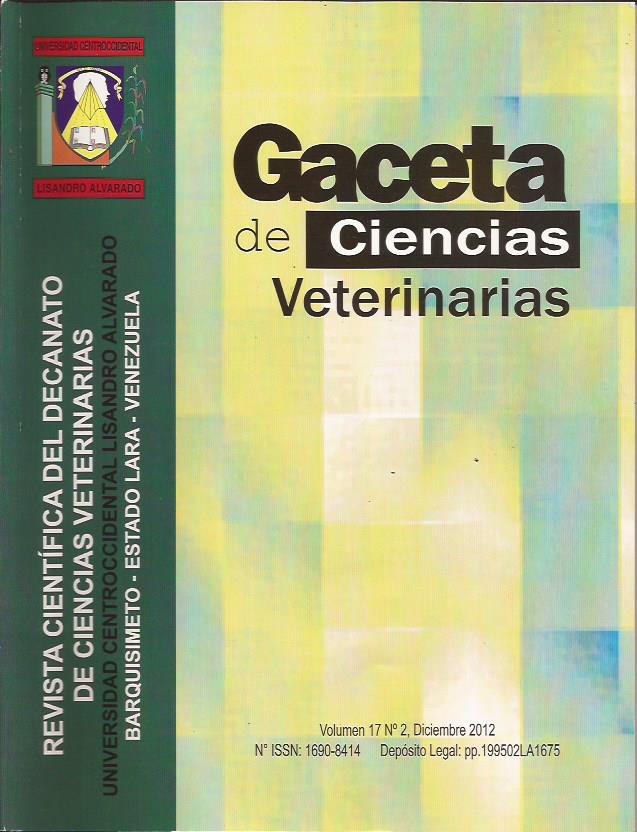Central Biotherium of the Universidad Centroccidental "Lisandro Alvarado" (UCLA) during the COVID- 19 pandemic
Keywords:
biotherium, pandemic-Covid-19, laboratory animalsAbstract
The times of the COVID-19 pandemic in the biotheriums have not been easy worldwide. Neither has it been so for the biotheriums in Venezuela, especially in the Central Biotherium of the Lisandro Alvarado Centroccidental University, which did not stop working 365 days of the year, 2019 or the subsequent years of Pandemic, at the beginning there was much fear on the part of the personnel working in the Unit, but it had to be clear that they were working with defenseless living beings that needed specialized human beings who worked in the unit to take care of them and maintain them. Several preventive measures were adapted in accordance with what the governmental authorities indicated. But they were adjusted to the unit's own needs, the main ones being the biosecurity measures to guarantee the well-being of the personnel working in the unit so that they in turn could guarantee the safety of their families, thus avoiding any contagion that could put the personnel's lives at risk. On the other hand, maintaining the safety of the animals produced in the Central Biotherium such as NMRI strain mice, C57Bl/6 strain, Sprague dawley strain rats, as well as Syrian Hamsters, guaranteeing their feeding, as well as cleaning and disinfection of the cages and facilities, which could certify their welfare. The production of animals was reduced to its minimum expression, keeping only the offspring of the strains of each species. Thus safeguarding the production of the animals produced in the Unit.
Downloads
References
Zuñiga J M, Piñeiro RG, Tur- Marí JA, Milocco SN. Ciencias y tecnología en protección y experimentación animal. MCGra-Hill. 1 ed, Madrid España, 2001. 682 p.
Fuentes FM , Mendoza RA, Rosales AL, Cisneros RA. Guía de manejo y cuidado de animales de laboratorio : ratón. Centro Nacional de
Productos Biológicos Instituto Nacional de Salud, Lima, 2008 52 p.
Cardozo CA, Mrad A, Martínez C, Rodríguez E, Lolas F. El animal como sujeto experimental, aspectos técnicos y éticos.(1era Ed.) 2007. Universidad de Chile. 227 p.
Acosta LJ.. Editorial: Contribución de los animales de laboratorio en la investigación científica, GCV 2020; 25(1): 2-3.
Pacak K, Palkovits M. Stressor specificity of central neuroendocrine responses: implications for stress-related disorders. Endocr Rev 2001; 22:502-548.
Reyna E. Importancia de la implementación de los bioterios para el desarrollo de investigación científica Bol Inst Nac Salud. 2020; 26: 5-6.
Zuluaga AF, Salazar BE, Galvis W, Loaiza SA, Agudelo M, Vesga Ó. Fundación del primer bioterio MPF funcional de Colombia. Iatreia
[Internet]. 10 de febrero de 2003 [citado 24 de mayo de 2023];16(2): 115-131. Disponible en: https://revistas.udea.edu.co/index.php/i
atreia/article/view/3994.
Fuentes M, Contribución al conocimiento de la parasitofauna y terapia parasitaria en Ratones (Mus musculus), NMRI,C57B) L/6, Balb/c, Ratas (Rattus norvegicus Sprague Dawley y SHR/N del Bioterio Central de la Universidad Centroccidental Lisandro Alvarado (UCLA) de
Venezuela. Tesis Doctoral Universidad de Zaragoza, España, 2012.
Rodríguez E. Ética de la investigación en modelos animales de enfermedades humanas. Acta Bioethica 2007; 13(1): 25-40
Primer Coloquio Virtual sobre el Manejo de Bioterios en Tiempos de Pandemia, organizado por CICUA con el apoyo de la VID de la
Facultad de Medicina de la Universidad de Chile, moderador Dr. Ronald Vargas Director Ejecutivo de CICUA, realizado el 12 de Mayo de
a las 15 horas mediante plataforma zoom.
Guillén J., Director para Europa y Latinoamérica de AAALAC Internacional. https://www.uchile.cl/agenda/175354/coloquio-manejo-de-bioterios-entiempos-de-pandemia. 12-05-2021
Published
How to Cite
Issue
Section

This work is licensed under a Creative Commons Attribution-NonCommercial-ShareAlike 4.0 International License.
Gaceta de Ciencias Veterinarias se apega al modelo Open Access, por ello no se exige suscripción, registro o tarifa de acceso a los usuarios o instituciones. Los usuarios pueden leer, descargar, copiar, distribuir, imprimir y compartir los textos completos inmediatamente después de publicados, se exige no hacer uso comercial de las publicaciones. Para la reproducción parcial o total de los trabajos o contenidos publicados, se exige reconocer los derechos intelectuales de los autores y además, hacer referencia a esta revista. La publicación de artículos se hace sin cargo para los autores. Los trabajos pueden consultarse y descargarse libremente, y de manera gratuita, en extenso en versión digital, desde su enlace Web institucional. Los textos publicados son propiedad intelectual de sus autores. Las ideas, opiniones y conceptos expuestos en los trabajos publicados en la revista representan la opinión de sus autores, por lo tanto, son estos los responsables exclusivos de los mismos.



